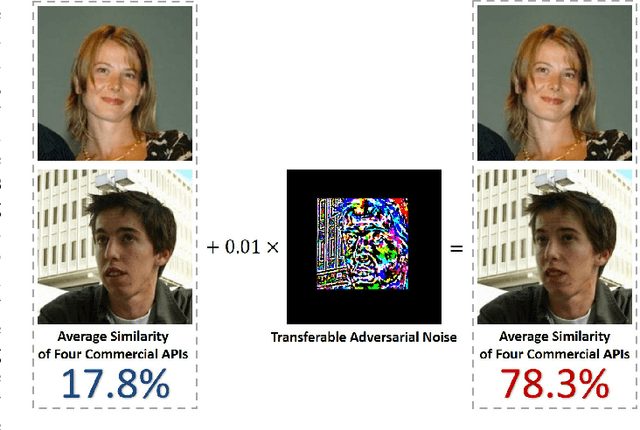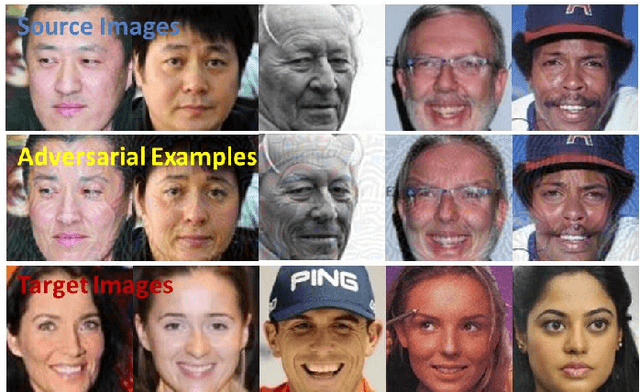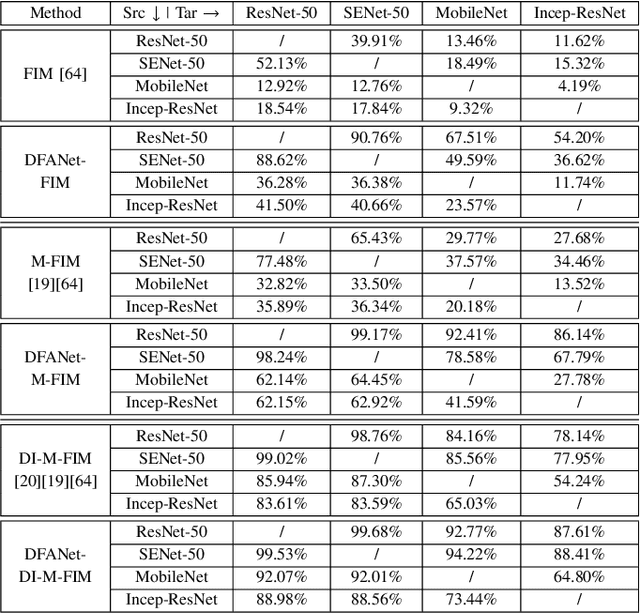Towards Transferable Adversarial Attack against Deep Face Recognition
Paper and Code
Apr 13, 2020



Face recognition has achieved great success in the last five years due to the development of deep learning methods. However, deep convolutional neural networks (DCNNs) have been found to be vulnerable to adversarial examples. In particular, the existence of transferable adversarial examples could severely hinder the robustness of DCNNs since this type of attacks could be applied in a fully black-box manner without queries on the target system. In this work, we first investigate the characteristics of transferable adversarial attacks in face recognition by showing the superiority of feature-level methods over label-level methods. Then, to further improve transferability of feature-level adversarial examples, we propose DFANet, a dropout-based method used in convolutional layers, which could increase the diversity of surrogate models and obtain ensemble-like effects. Extensive experiments on state-of-the-art face models with various training databases, loss functions and network architectures show that the proposed method can significantly enhance the transferability of existing attack methods. Finally, by applying DFANet to the LFW database, we generate a new set of adversarial face pairs that can successfully attack four commercial APIs without any queries. This TALFW database is available to facilitate research on the robustness and defense of deep face recognition.
 Add to Chrome
Add to Chrome Add to Firefox
Add to Firefox Add to Edge
Add to Edge